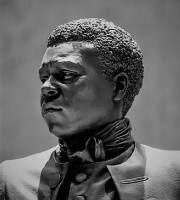About Benjamin Banneker
Benjamin Banneker born in November 9, 1731, Baltimore County, present-day Maryland, was an African-American astronomer, mathematician, clockmaker, publisher, and abolitionist. He is a historical figure, celebrated in Baltimore and Maryland as the first African-American scientist. In 1753, Banneker made one of the first pocket watches made entirely of American material from wood, which made him famous in the region. It was not until 1788 that he began to study astronomy. He received the necessary books and instruments from George Ellicott, a brother of the mayor of his native town. In 1789, in contrast to well-known astronomers, he predicted a solar eclipse almost exactly. Two years later, with Mayor Andrew Ellicott, he took on the survey of the future federal district of Washington, D.C. before.Between 1792 and 1797, Banneker published an annual almanac containing astronomical ephemeris, but also political, humanitarian, and abolitionist texts. He was already calling for an institution comparable to the United States Institute of Peace founded in 1984 ("an office for promoting and perserving perpetual peace"). He sent a manuscript of the first almanac to the later President Thomas Jefferson and in a cover letter criticized his views of a black race as being intellectually inferior to whites and the contradiction between the freedom guaranteed to all people in the constitution and ongoing slavery. He compared the situation of blacks to that of the United States under the "tyranny of the British Crown" before the Revolutionary War. In his reply, Jefferson expressed his enthusiasm for Banneker's work, which he sent to Marquis de Condorcet, secretary of the Académie des sciences in Paris. He sees the almanac as further proof of a possible equality of black talents, the expression of which would be hampered by the "diminished conditions of their existence in Africa & America". In a letter written in 1809, however, he attested to Banneker only having an "ordinary" intelligence on the basis of his letter to him.
In his last years he published treatises on bees and the locust cycle, among other things. Benjamin Banneker died at the age of 74 at home on the farm he had sold to the Ellicott family. During a walk with a friend, on October 9, 1806, he complained, feeling bad, he returned home to rest on his sofa, he died in his sleep a few hours later. He was buried on Tuesday, October 11, 1806 in the family cemetery, adjoining his property.
Browse all poems and texts published on Benjamin Banneker









